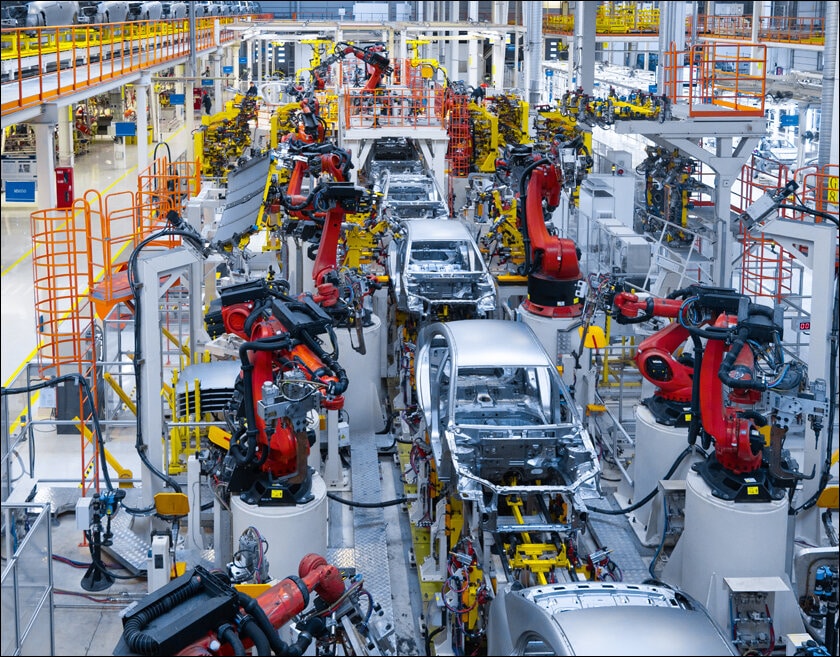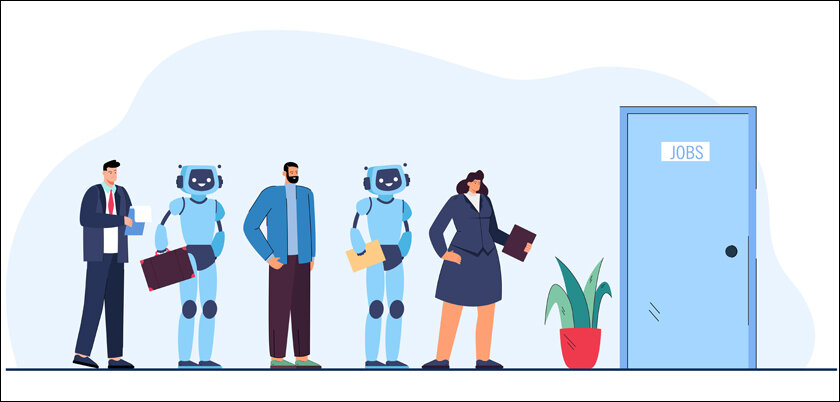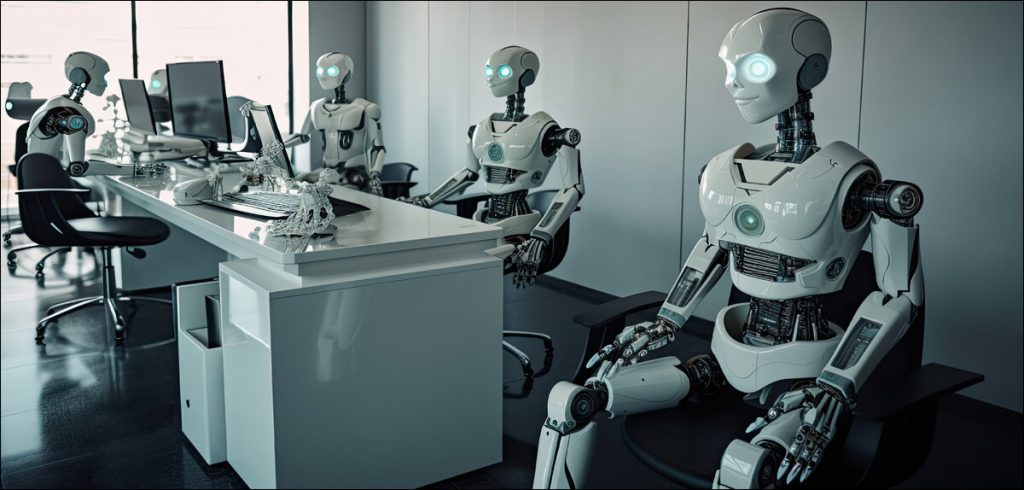Adarsh delves into the job-related anxiety among IT professionals due to the rise of Artificial Intelligence and Automation….
January 2024 saw 121 IT companies lay off 34,007 employees across the world. The following month saw 74 companies cut 15,379 of their staff. At the time of writing, as many as 222 tech companies have laid off around 56,858 employees. And the number continues to mount.
No wonder there is so much concern among IT professionals.

Worry among IT professionals
A recent report from Authority Hacker claims that as many as 54.58% of workers are increasingly worried about the possibility of job loss. Within that number, the tech sector is the most distressed.
The report also claims that IT Services and Data professionals (89.66%) and Software Development (74.42%) are experiencing the highest levels of anxiety because of job security.
Of all those who were surveyed, as many as 72.42% have said that they are feeling uneasy about the impact of AI on their jobs over the next five years. Almost half of them – 48.28% to be exact – agreed that AI will impact their job security. Among those expressing the most apprehension are C-level executives (85%) and Directors (78.83%).

Reasons for Job Loss
There are a host of reasons as to why companies are laying people off. Especially after Covid-19, several companies are undergoing some form of restructuring or another. There are major shifts in business priorities and in several cases, this means a lot of departments or projects get eliminated. This in turn results in job cuts.
In January this year, SAP announced its restructuring plan, adding that it will affect over 7% of its staff, that totals to around 1,08,000. The German software company is looking to accelerate its growth partly through AI as it aims to become cloud-centric. Similarly, Expedia Group said it was laying off 1500 employees in a bid to streamline its cost structure.

Restructuring isn’t the only reason. There are other factors at play too. Economic uncertainty, improving financial stability, overstaffing during pandemic and push from investors all result in job cuts.
In February, IT company Cisco announced that it is laying off as many as 5% of its workforce, which is about 4,250, due to a variety of factors that include an uncertain business environment and sluggish demand in telecommunications.
The Rise of Artificial Intelligence
There has been rapid growth in the Artificial Intelligence and Automation in the last few years. And it has taken over several jobs which were previously performed by human. This has been observed the most in roles that are routine or repetitive.
As machines become increasingly sophisticated, they can perform tasks that were once exclusive to human workers, leading to automation across various sectors. From manufacturing and transportation to customer service and data analysis, AI-driven technologies are displacing human labour at an unprecedented rate. As businesses adopt AI solutions to streamline operations and reduce costs, many workers find themselves sidelined or replaced altogether, exacerbating unemployment and reshaping the workforce landscape.

The Future of AI
But the rise of AI will not solely lead to job displacements, it will also create new kinds of opportunities. In fact, a report by the World Economic Forum forecasted that AI could likely create as many as 97 million new roles by 2025. But to be eligible for such AI-powered roles, equipping oneself with AI skills has become extremely imperative.
This can be done in a host of ways: by incorporating AI tools into daily operations, nurturing interpersonal skills such as communication and empathy, cultivating professional networks and also fostering specialised expertise and personal branding.
The Last Word
Several studies have also indicated that a vast majority of executives anticipate AI to augment rather than replace job roles, reinforcing the importance of AI upskilling in mitigating unemployment risks.
Like it or not, AI is here to stay. So, getting on the bandwagon and empowering oneself with AI-related skills is the only way forward.
In case you missed:
- Microsoft’s 2025 Work Trend Index reveals the rise of Frontier Firms
- Why are Companies resorting to Office Peacocking?
- AI and Loneliness: Culprit or Cure?
- The Future of Online Marketing: Adobe introduces AI Agents
- Should Chatbots have Rights? Ethicality vs Practicality
- Google launches ‘Cheap AI’ to Combat Rising Costs & Chinese Competition
- AI Chaos: Why OpenAI, Google and Microsoft Keep Shifting Strategies
- India’s AI Ambitions in the Spotlight amidst DeepSeek’s Disruption
- Is the Foldable iPhone Around the Corner?
- India rises to 2nd Place in Global Smartphone Sales, 3rd in Market Value









